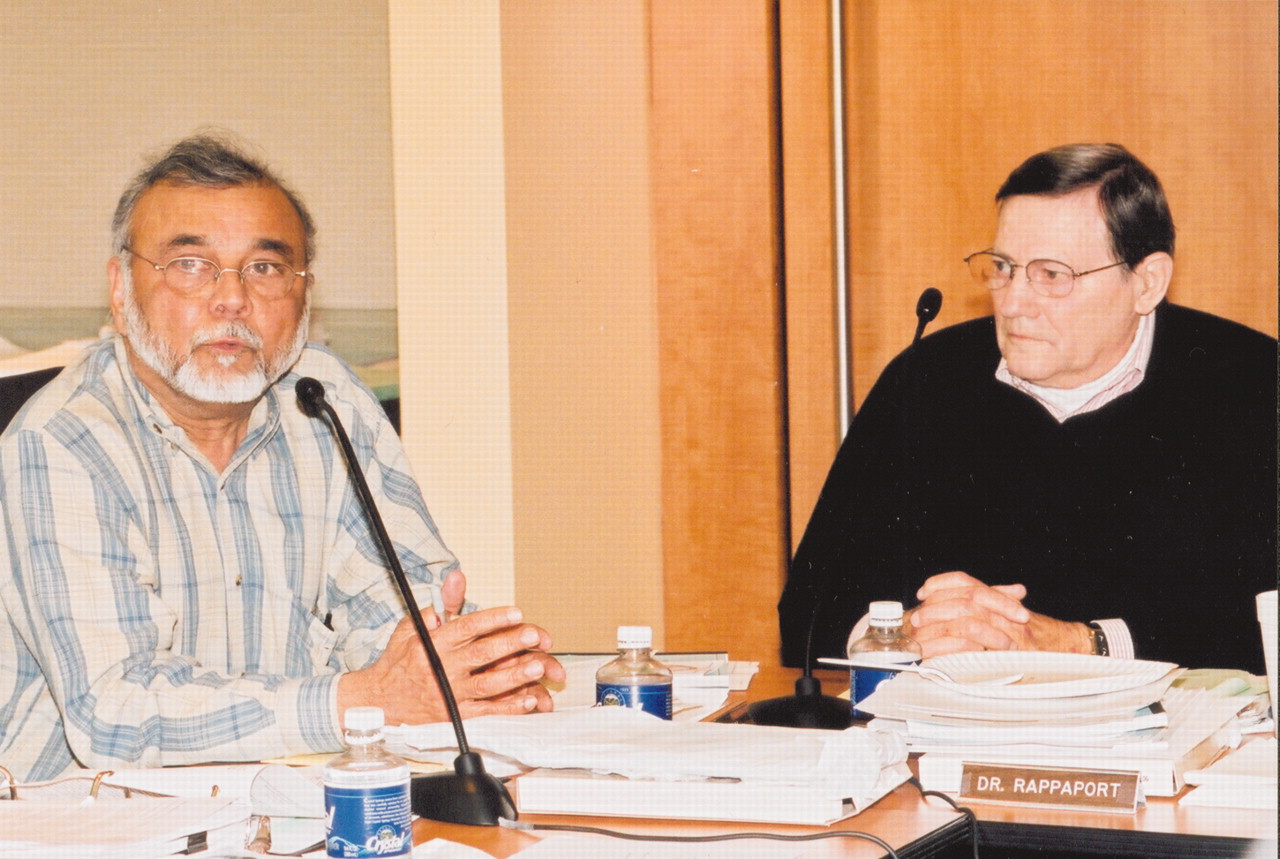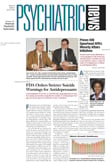APA’s Board of Trustees has found a solution, at least in the short term, for one of the more troubling issues it has confronted in the last few years—threats by two district branches (DBs) to establish an “affiliate” category that would circumvent APA’s requirement that members belong both to the national organization and a DB.
In a memorandum to the Board, APA counsel JoAnn Macbeth pointed out that “the dual-membership requirement is long-standing APA and DB policy and is reflected in numerous APA programs, procedures, and corporate documents, including the APA Bylaws, which require APA members to be DB members” unless the Board grants an exemption.
“It is incumbent on the Board of Trustees,” she added, “to review DB actions that are inconsistent with the dual-membership policy to consider implications for APA and to determine what steps are appropriate as a corporate matter.”
At their March 12-14 meeting at APA headquarters in Arlington, Va., Board members voted to accept a plan by one of those DBs—the Washington State Psychiatric Association (WSPA)—in which the DB shelved its affiliate-category proposal in exchange for APA’s financial support of a new-member recruitment effort.
The other DB planning to implement a new member category—the Texas Society of Psychiatric Physicians—did not offer an alternative plan by the time of the March meeting. At a January roundtable meeting in Tucson, Ariz., APA President Marcia Goin, M.D., Medical Director James H. Scully Jr., M.D., and Assembly Speaker Prakash Desai, M.D., had asked leaders of the two district branches to work with them to develop a member recruitment and retention plan that would not rely on introducing a new membership category that violates the dual-membership requirement.
The centerpiece of the recruitment plan the WSPA proposed in lieu of a new affiliate category, and which the Trustees accepted, sets national dues for new members at the reduced rate of $90 for the first two years instead of $180. After that, dues would be the same as the regular national dues—$180 in the third year of membership, $360 in years four to six, and $540 thereafter. Lapsed members who want to rejoin during this two-year pilot project would pay the regular national dues, but would be given amnesty for unpaid dues from prior years.
In addition, new WSPA members would receive incentives such as free registration at an annual meeting, a discount coupon for American Psychiatric Publishing Inc. books, and a free subscription to Focus, APA’s “journal of lifelong learning.”
APA will also fund a WSPA recruitment drive that describes the benefits of APA and DB membership and regional meetings in eight areas of Washington state. In addition, APA will provide financial assistance to form a mentoring program directed at residents and early career psychiatrists.
The results of the two-year pilot project will be assessed each year, and at its conclusion APA will decide whether to continue it or expand it to other DBs.
Trustees expressed their disappointment that the Texas DB had not developed an alternative plan to creating a new member category. The Board went on to discuss a statement saying that “if the [Texas DB’s affiliate membership plan] was implemented, the program would constitute the establishment of a new membership category. In addition, the Board unanimously concurred with the Assembly Executive Committee’s recommendation that APA not approve such an affiliate program and affirmed [APA’s] long-standing dual-membership policy.”
The Board then voted to inform Texas DB leaders that it would make the same recruitment program available to them that was earlier approved Washington state.
Uncontested Elections Defeated
The Trustees extensively debated a proposal from the APA Nominating Committee to allow future nominating committees the option of selecting only one candidate to run for president-elect. Nominating Committee Chair Paul Appelbaum, M.D., explained that the option for running an unopposed candidate would be used only in “exceptional circumstances,” when committee members could not identify more than one competitive, well-prepared candidate for president-elect. That candidate is usually the APA senior vice president, who almost always wins—and usually by a wide margin. (Beginning this year, there will be only one vice president. Members voted for a referendum in the 2003 election that eliminated one of the two vice president positions.)
Nominating committees have had considerable difficulty in recent years coming up with a candidate to oppose a vice president nominated for president-elect. For nine consecutive years the senior vice president has been the victor in the president-elect contest.
Under the proposal, members would still have been able to run for president-elect by petition. The single-candidate option would not have applied to any other races for positions on the Board.
A majority of the Board registered opposition to the proposal. Former APA president Lawrence Hartmann, M.D., appeared to speak for many when he advised his colleagues against taking any step that could “distance” the Board from the APA membership. “We have to interest people in running and find ways of differentiating” among these individuals and their ideas for APA. He maintained that having an uncontested race for president-elect will dissuade many members from bothering to vote, aggravating an already waning interest in APA elections, judging from ballot totals.
Another former president, Daniel Borenstein, M.D., supported the proposal, stressing that there is “no evidence that contested elections have resulted in greater member participation or interest in [APA] elections.”
Only four members voted for the uncontested-race proposal.
Policy Statement Adopted
The Board also voted to endorse a policy statement on universal access to health care coverage that says it is APA policy “to support universal access to health care, specifically including nondiscriminatory coverage of treatment for mental illness, including substance abuse, for all Americans. APA will advocate vigorously for this at local, state, and national levels.” This was a modified version of an action paper that was passed by the Assembly.
With psychosomatic medicine gaining approval last year as the latest psychiatry subspecialty, the Board voted to back the formation of a Council on Psychosomatic Medicine to acknowledge this field’s increasing prominence. The Board deferred a decision on what committees will be subsumed within the new council pending discussions between members of the new council and the Joint Reference Committee on what the most useful committee structure would be.
In addition, the Board heard Charles Curie, M.A., director of the federal Substance Abuse and Mental Health Services Administration (SAMHSA), describe the agency’s priorities and programs. He stressed that he sees a critical role for APA in the “transformation” of the U.S. health care system from its current fragmented and gap-riddled state to the far-better one described last year in the President’s New Freedom Commission on Mental Health report. Curie noted that SAMHSA’s Fiscal 2005 budget request contains $44 million in new money for state grants focused on reforming health care delivery. ▪

